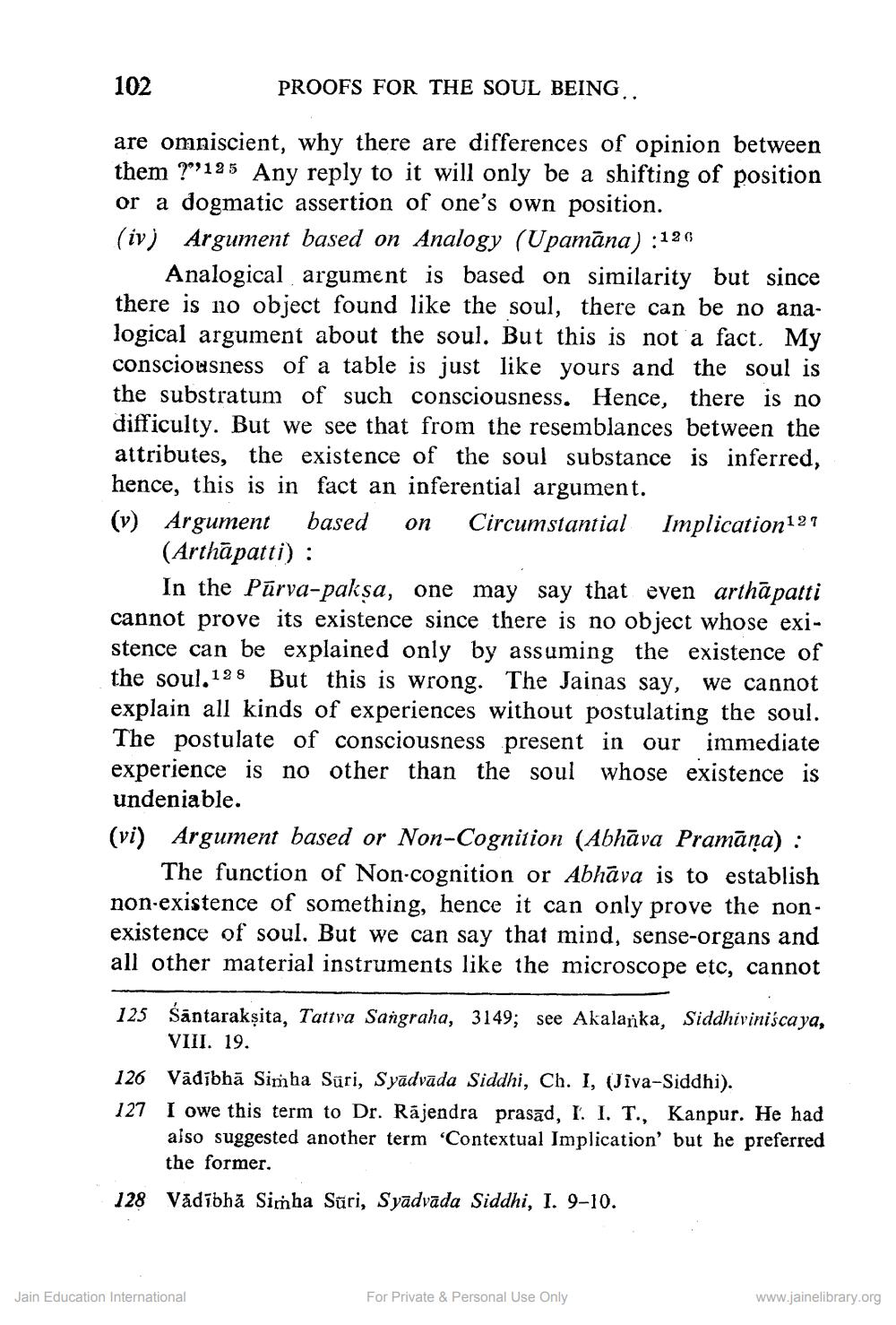________________
102
PROOFS FOR THE SOUL BEING.
are omniscient, why there are differences of opinion between them ?":125 Any reply to it will only be a shifting of position or a dogmatic assertion of one's own position. (iv) Argument based on Analogy (Upamāna) :126
Analogical argument is based on similarity but since there is no object found like the soul, there can be no analogical argument about the soul. But this is not a fact. My consciousness of a table is just like yours and the soul is the substratum of such consciousness. Hence, there is no difficulty. But we see that from the resemblances between the attributes, the existence of the soul substance is inferred, hence, this is in fact an inferential argument. (v) Argument based on Circumstantial Implication121
(Arthāpatti) :
In the Pūrva-paksa, one may say that even arthāpatti cannot prove its existence since there is no object whose existence can be explained only by assuming the existence of the soul.128 But this is wrong. The Jainas say, we cannot explain all kinds of experiences without postulating the soul. The postulate of consciousness present in our immediate experience is no other than the soul whose existence is undeniable. (vi) Argument based or Non-Cognition (Abhāva Pramāņa) :
The function of Non-cognition or Abhāva is to establish non-existence of something, hence it can only prove the nonexistence of soul. But we can say that mind, sense-organs and all other material instruments like the microscope etc, cannot
125 śāntarakṣita, Tattva Sangraha, 3149; see Akalarika, Siddhiviniscaya,
VIII. 19. 126 Vadībhā Simha Sūri, Syadvada Siddhi, Ch. I, (Jiva-Siddhi). 127 I owe this term to Dr. Rajendra prasad, I. I. T., Kanpur. He had
also suggested another term 'Contextual Implication' but he preferred
the former. 128 Vadībhă Simha Sūri, Syadvāda Siddhi, I. 9-10.
Jain Education International
For Private & Personal Use Only
www.jainelibrary.org




